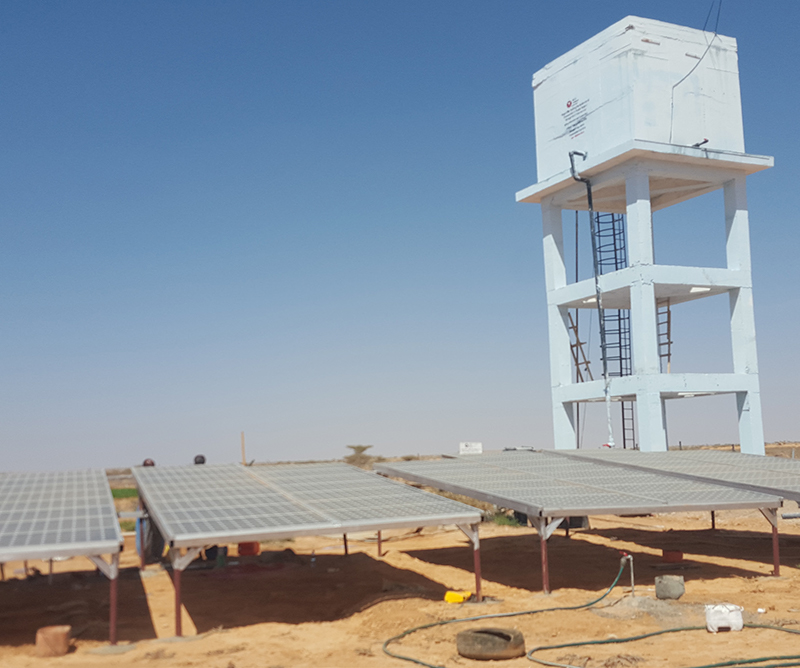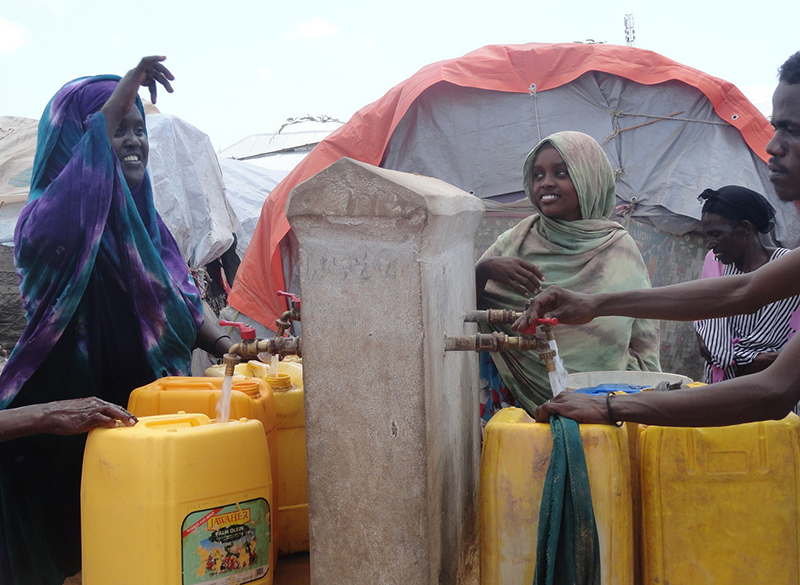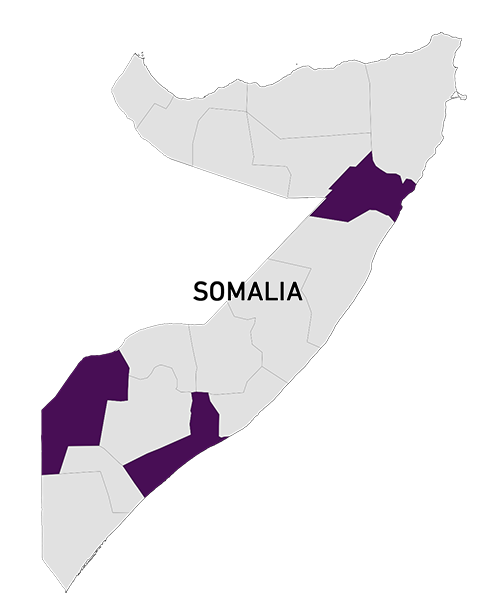
Norwegian Church Aid (NCA) has extensive experience from long-term development aid and emergency relief work in Somalia. Following the humanitarian crisis caused by the collapse of the central government in 1991, NCA commenced its operations in Somalia in 1993. Two decades of conflict and worsening cycles of drought have left millions of Somalis extremely vulnerable to subsequent risks of acute humanitarian problems.

Anchored in a contextually appropriate conflict sensitive design, NCA’s emergency response adheres to humanitarian principles, ensuring provision of emergency relief in an impartial manner and with an emphasis on Linking Relief Rehabilitation and Revelopment (LRRD) principles.
In addition to the political and security turmoil since the early 1990s, the humanitarian situation in the country has further worsened by regularly recurring natural disasters i.e. to drought and floods. NCA’s expertise and main delivery in humanitarian response operations is the provision of WASH services and livelihoods, often combined with other sector responses such as distribution of food and non-food items and provision of shelter.
Emergency WASH programmes are NCA’s earliest interventions in Somalia since 1993. The project responds to the needs of the population by ensuring access to safe and sustainable water, appropriate sanitation facilities and hygiene promotion among the target population. Detailed needs assessment has been carried out for Kutunwarey and Abdiaziz, which have varied needs in relation to WASH operation. This needs assessment has played a critical role in effectively targeting communities and address their needs in the scale up of NCA’s emergency WASH operations. NCA’s emergency WASH programming has integrated gender and conflict sensitive design to curb GBV instances in IDP camps and in host-communities.

In Somalia, NCA’s livelihood programme provides timely life saving and critical support to millions affected by environmental and conflict crises. The programme has evolved from providing immediate humanitarian assistance to early recovery of population in crisis and transitioning to long-term development through rehabilitation of livelihood assets.

NCA’s geographical focus for its emergency response in Somalia is in Gedo, Puntland, Banadir and Lower Shabelle. NCA’s ACT sister agencies respond to emergencies in other areas as per the ACT Somalia Forum Preparedness and Response Plan. NCA became active in Puntland following the 2004 tsunami and has maintained presence through interventions supporting alternative livelihoods to piracy, food security, WASH, peace building and education. NCA works with partners in Banadir and the Shabelles (since 2008) and we collaborate in WASH and livelihood in emergency activities, implementing projects in Afgooye, Darkenley, Hamarweyne, Wadajir, Hodan and Zona K.
NCA and its local partners continue to coordinate and create synergies in our work through active participation and collaboration with ACT Somalia Forum members, working in target locations. NCA’s Somalia country office has strong links to governmental and international agencies through various platforms such as ACT Somalia Forum (ASF). Norwegian Church Aid is an active member of the ACT Alliance which has a coordination mechanism that facilitates collaboration with five other international organisations in Somalia (forum members) for the purpose of mobilising resources and sharing information to support Somalian population. NCA collaborates with, and coordinates through the UN Cluster mechanisms in Nairobi and at field level.
The following table provides details of NCA's emergency response interventions in Somalia:
| Year | Type of Disaster | Program | Interventions | Families | Assisted Individuals | Areas | Value | Donor |
|---|---|---|---|---|---|---|---|---|
| 2011-2014 | Famine, tropical cyclone, and drought | WASH, Livelihood and trade | Emergency provision of safe water and livelihood support for drought affected households | 117,040 | 585,200 (247,143 men and 348,057 females) | Gedo,Eyl and Dangorayo Districts in Puntland | USD 5,664,492 | ACT Alliance, Unicef, NMFA |
| 2015 | Floods | WASH | Floods and conflict displacement | 18,898 | 94,488 | Gedo | USD 94,000 | NMFA |
| 2015 | Drought | Livelihood | Livelihood and trade | 1,116 | 5,580 | Gedo | USD 58,868 | WFP |
| 2016 | Drought | WASH | Drought response to Puntland IDPs and host communities | 2,400 | 12,000 | Puntland | NOK 1,500,000 | NMFA |
In 2015, the projects for WASH and livelihoods in emergencies reached 100,068 rights-holders (55,316 female and 44,152 male) and a total of 685,268 beneficiaries from 2011-2015.